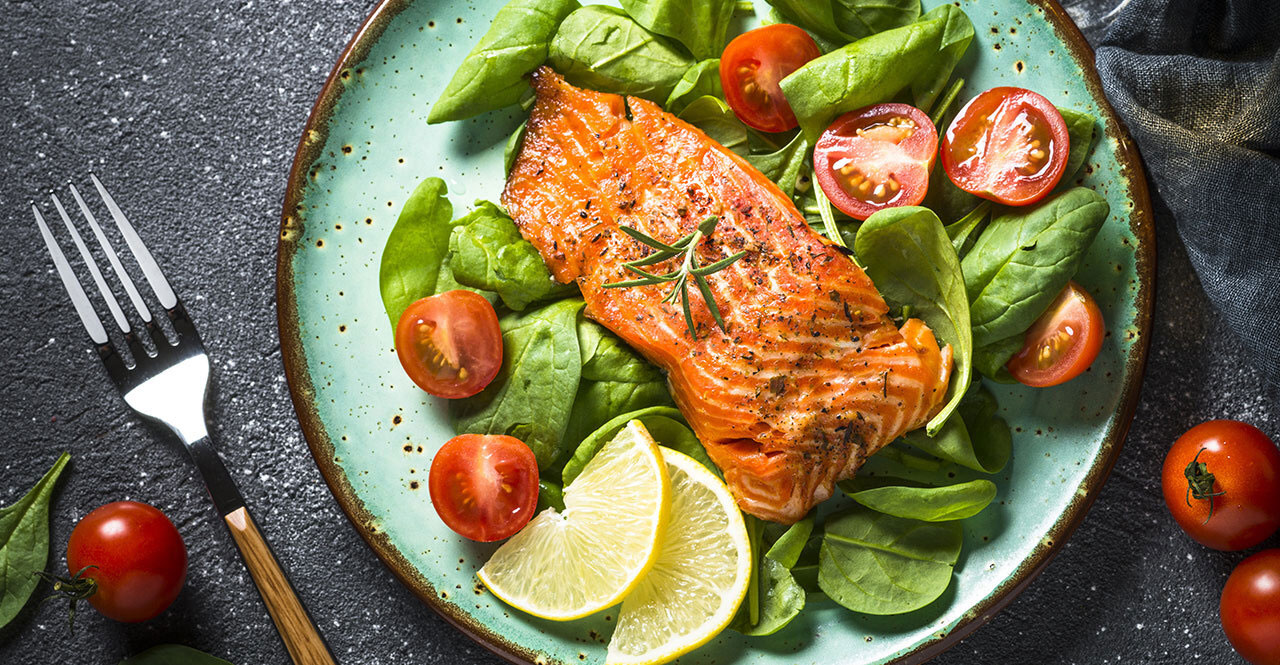
In a simpler time, we all pretty much knew what a balanced diet was. It was basically code for “eat whole, natural foods—a fair amount of plants, some protein, and good fats like olive oil, avocado, and nuts.” Heck, even a little alcohol and a touch of sugar wasn’t necessarily out of balance.
For the record, generally speaking a balanced diet includes:
- Clean, organic sources of protein—beef, chicken, pork, fish, eggs, beans, tofu
- Plenty of plants (the more colors the better)
- Healthy sources of fat—olive oil, grass-fed butter, nuts, seeds, avocados
- Whole grains, if you’re so inclined—rice, quinoa, oats, buckwheat (stick to gluten free as much as possible)
While there are no perfect proportions for everyone, about 8–10 oz. of protein a day for adults (more if you’re active), vegetables to your heart’s content, fruit once a day, and fat for cooking and flavor (but don’t let it be greasy). If you’re eating grains, half a cup a couple of times per day will do.
With the current state of affairs, the stress we’re all undoubtedly managing, the desire to steer clear of supermarkets (even if it’s just because you hate standing in line outside for 30 minutes), it’s important to be able to re-evaluate in the moment the best ways to feed ourselves, even if our chance of being perfect feels like a distant goal. It doesn’t mean you can’t make healthy choices, it just means that the choices might look a little different.
The Whole Life Challenge helps you create easy to follow guidelines for yourself and stay accountable to them each time you’re sitting down to eat. It gives you the support and structure to put into action small, everyday strategies that will help you not only eat well, but create health, well-being, and resilience in the face of many of life’s challenges.

Short of a perfectly balanced diet, here are 5 simple rules for staying “in bounds” without driving yourself crazy with longs lists of forbidden foods:
Eat protein and some fat at each major meal. These are the nutrients that are going to leave you feeling fuller for longer. Other than veggies, make them the major part of your meal. Carbs and other forms of sugar will leave you hungry sooner and increase the chance that you’ll find yourself in front of the fridge before you know it. The Whole Life Challenge doesn’t require you to weigh or measure your foods, but simply to take into account the quality of your food choices.
Limit alcohol consumption. Even in normal times, some alcohol can be a part of a normal balanced diet. It’s fine to have a glass of wine, even one a day if you need to. Find strategies, though, for limiting alcohol consumption, even if it’s just only buying one bottle of wine at a time or drinking a glass of water before you have a second glass.
Eat breakfast. Unless you’ve programmed yourself to fast through the first half of the day, a good way to make sure you stay balanced throughout the day is to eat a good breakfast. Morning is not only the ideal time to fuel, it can help reduce the tendency to snack, which can tend to be mindless and often less than nutritious.
Treat yourself. It’s not a sin to enjoy a treat now and again. Eating well on a regular basis leaves you with leeway to enjoy something sweet or indulgent without having to worry about paying a heavy price. Balancing nutrition with a little enjoyment is also a good way to keep yourself motivated to continue to do the things that you know are good for you. Just make sure you have a rule, like only once during the week and once on the weekend, max. With our unique scoring system, the Whole Life Challenge allows you to earn bonuses for sticking to your commitments that you can then use to indulge in a treat without losing any points in the game. We believe an “all or nothing” approach too often ends up as “nothing” rather than “all.”
Be flexible. When all else fails, and the best laid plans end in eating a pizza, remember that you’re human. There will be days when you eat all the wrong things, snack too often, drink too much, or eat one too many desserts. Being understanding and being forgiving of yourself is an important part of resilience and sustainability. You always have the chance to start fresh each day and take the actions you’re committed to taking, no matter what happened yesterday.
Good nutrition and a balanced diet don’t have to be all rules and no fun. With commitment, accountability, intention, and some clear guidelines, you can accomplish a lot without having to worry about “perfection.”
The Whole Life Challenge gives you the structure and support you need to be able to put nutrition and other habits into practice every day in small, simple, and effective ways. Join now and build the habits you need to manage daily stress and uncertainty and build health, well-being, and resilience for the future.



































